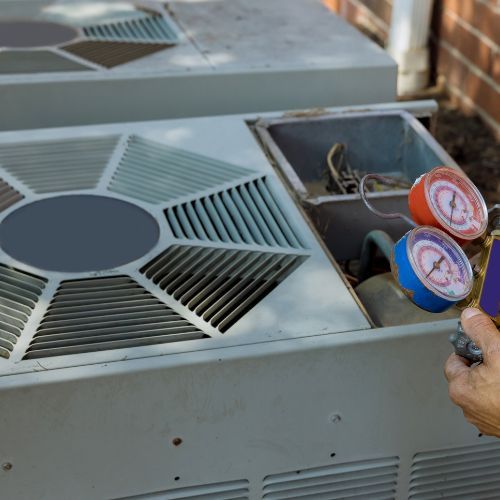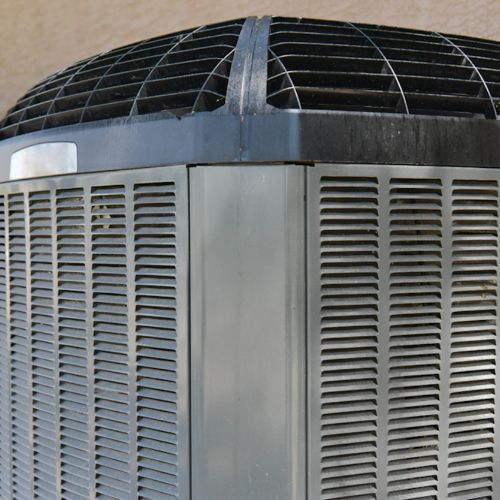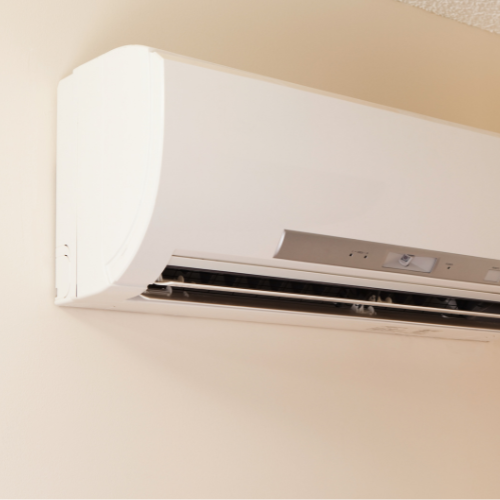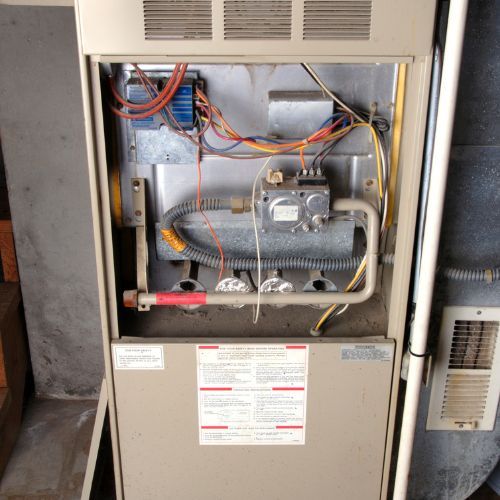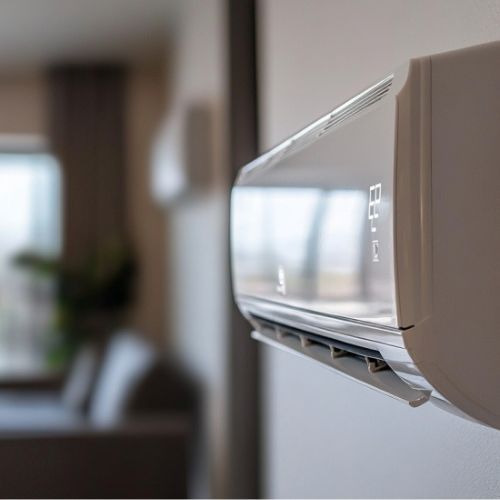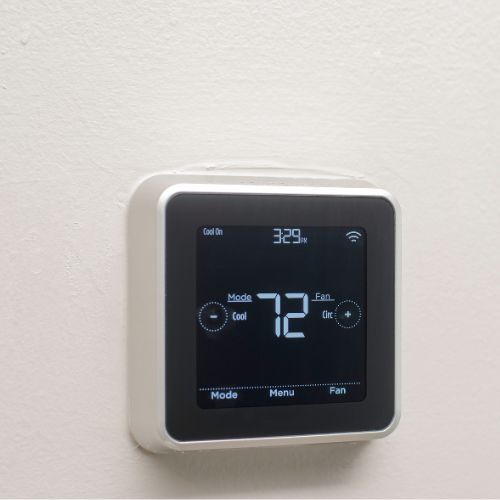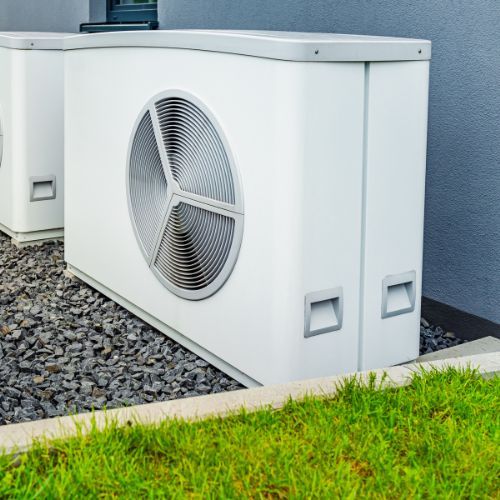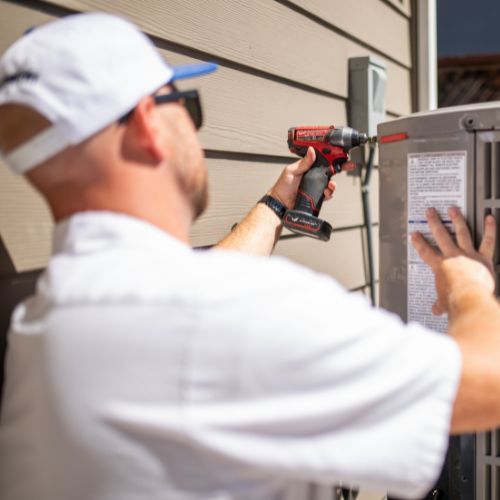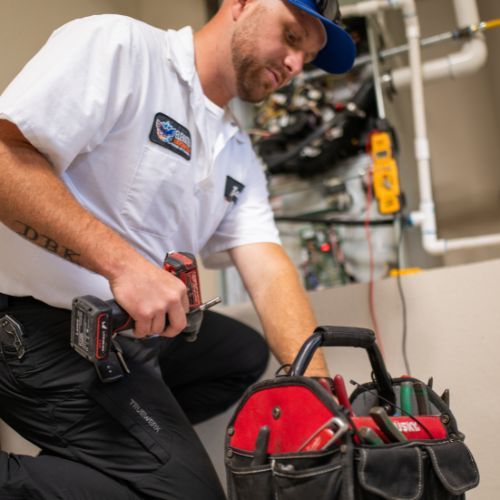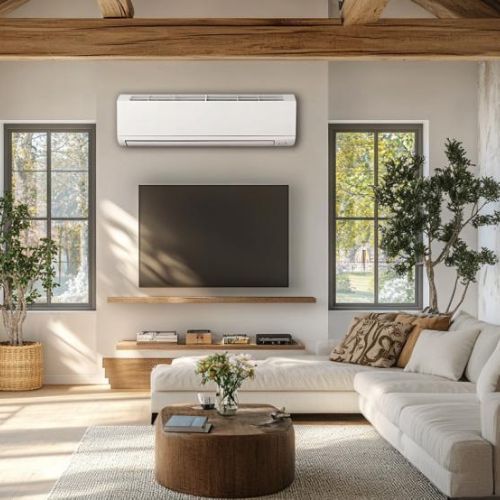Can a Furnace Catch on Fire?
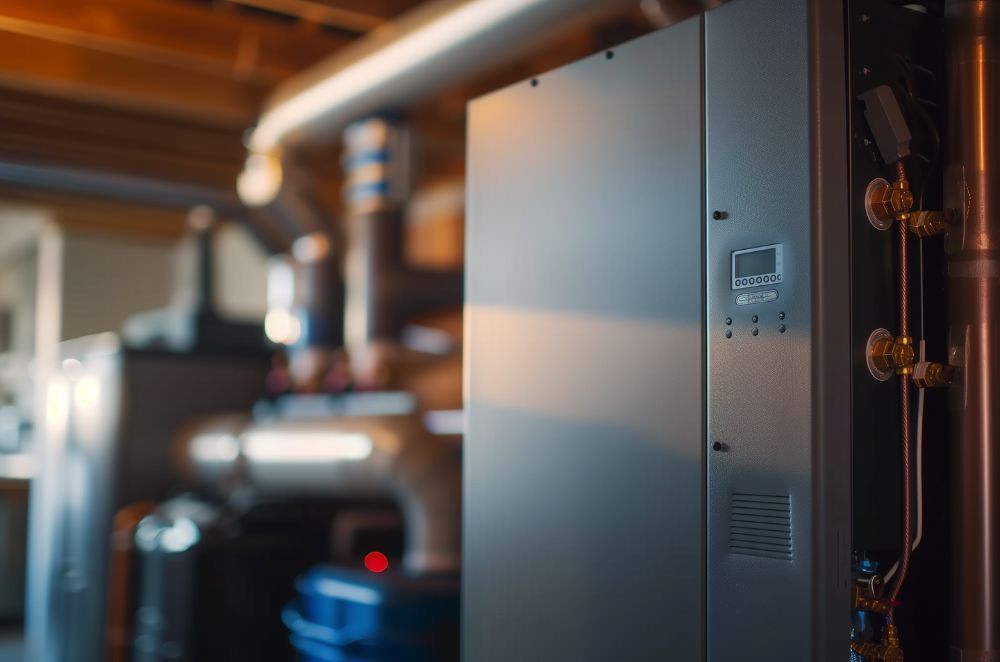
Table of Contents
ToggleTL;DR: Yes, furnaces can catch fire due to improper maintenance, faulty installations, or component failures. Prevent these risks by ensuring regular professional inspections, clear surroundings, and prompt repairs. Always prioritize safety with yearly check-ups to keep your home safe and warm.
The furnace plays a crucial role in keeping your home warm and comfortable, but they also bring with them questions about fire safety. Can a furnace, a cornerstone of modern comfort, become a source of danger?
This blog delves into the reality of furnace-related fire risks, exploring how such incidents can occur, the preventative measures homeowners can take, the importance of professional furnace maintenance, and the essential safety tips to adhere to. Our goal is to provide you with the knowledge needed to ensure your furnace heats your home without becoming a hazard, keeping your family safe and your mind at ease through the colder months.
Understanding Furnaces
To fully grasp the concept of furnace safety and the potential risks involved, it’s essential to begin with a basic understanding of how furnaces work and the types available in homes today. Furnaces are complex machines designed to heat air and distribute warmth throughout a building, operating on various fuels such as gas, electricity, or oil. Each type of furnace has its own set of characteristics, maintenance requirements, and potential safety issues.
- Gas Furnaces: The most common type, these use natural gas to heat the air. They are efficient and cost-effective but require careful installation and maintenance to prevent leaks and ensure proper venting of combustion gases.
- Electric Furnaces: These convert electricity into heat without the need for combustion, making them safer in terms of carbon monoxide risks. However, they can still present fire hazards if electrical components malfunction or if they’re improperly installed.
It’s crucial for homeowners to understand their furnace’s basic operation to recognize when something is amiss, such as unusual noises, smells, or a failure to heat properly, which could indicate a safety issue. Misconceptions about furnace operations can lead to neglect or improper use. For example, some might underestimate the importance of regular maintenance, thinking modern furnaces are “set and forget” appliances. This misconception can be dangerous, as even the most advanced furnace requires periodic checks to ensure it’s operating safely and efficiently.
Causes of Furnace Fires
Unfortunately, Furnace Fires can occur and it’s important to prevent these incidents from occurring to protect your home and family. Understanding the specific causes of furnace fires is key to prevention. Here are the primary factors that can lead to such dangerous situations, along with explanations of how they contribute to the risk of ignition:
- Lack of Maintenance: Regular maintenance is the cornerstone of furnace safety. Neglecting this critical task can lead to the buildup of dust, dirt, and other debris, which can obstruct airflow and cause the furnace to overheat. Furthermore, maintenance checks often reveal wear and tear on components that could fail and pose fire risks, such as faulty wiring or malfunctioning controls.
- Faulty Installations and Repairs: An improperly installed furnace can have fatal flaws from the start, including inadequate ventilation, improper gas connections, or electrical issues. Similarly, repairs done by unqualified individuals may not adhere to safety standards, leaving the furnace in a potentially dangerous state. Proper installation and professional repairs are non-negotiable for ensuring safety.
- Component Failure: Over time, any mechanical system is prone to wear and tear. In furnaces, component failure can present serious hazards. For instance, a cracked heat exchanger can allow carbon monoxide to seep into home air, and if it’s severe enough, it could lead to a fire. Electrical components can also fail, leading to sparks or overheating that ignites nearby flammable materials.
- Flammable Materials Nearby: Storing combustible materials close to the furnace is a risk that’s often overlooked. Items such as cardboard boxes, cleaning supplies, and even household clutter can easily catch fire if they’re too close to the furnace. A general rule is to keep the area around the furnace clear of anything that could ignite.
- Blocked Vents and Flues: The proper venting of gases is crucial for furnace operation. Blocked or improperly sized vents and flues can lead to a dangerous buildup of combustible gases inside the furnace. This not only poses a risk of explosion but can also lead to a fire if these gases find a source of ignition.
Each of these causes underscores the importance of awareness and proactive maintenance. By understanding what can go wrong, homeowners are better equipped to take preventive measures, such as scheduling annual inspections, ensuring professional installations and repairs, and keeping the furnace area clear of hazards. In the next section, we’ll delve into the specific steps you can take to prevent furnace fires, highlighting the actionable measures that can make a significant difference in ensuring your home’s safety.
Preventing Furnace Fires
Preventing furnace fires is largely about diligence and regular maintenance. By addressing the potential causes outlined earlier, homeowners can significantly reduce the risk of a furnace-related fire. Here are key preventive measures to ensure your furnace operates safely and efficiently:
- Schedule Regular Professional Maintenance: Annual or semi-annual inspections by a qualified HVAC technician are crucial. These professionals can identify and rectify issues such as blocked vents, dirty filters, and wear and tear on components before they escalate into serious problems. They can also ensure that the furnace is operating efficiently, which not only reduces fire risk but can also save on heating costs.
- Keep the Furnace Area Clear: Ensure that the area around your furnace is free of stored items, particularly flammable materials. A general rule is to maintain at least a 3-foot clearance around the furnace to prevent any accidental ignition from heat or sparks.
- Promptly Address Repairs: If a potential issue is identified, whether it’s an odd noise, a strange smell, or a sudden decrease in efficiency, address it immediately. Delaying repairs can not only lead to higher energy bills but also increase the risk of fire.
- Install and Maintain Smoke and Carbon Monoxide Detectors: While this is a broader safety tip, it’s particularly relevant for homes with furnaces. Smoke detectors can alert you to a fire quickly, while carbon monoxide detectors are essential for identifying leaks from a faulty furnace before they pose serious health risks or lead to fire.
- Educate Your Household: Ensure that all members of your household understand the importance of furnace safety. This includes recognizing warning signs, knowing how to shut off the furnace if necessary, and understanding the importance of keeping the area around the furnace clear.
By taking these steps, homeowners can significantly reduce the likelihood of a furnace fire. The key is regular maintenance and a proactive approach to safety. Furnace fires, while rare, can have devastating consequences, so taking the time to ensure your furnace is safe and well-maintained is a wise investment in your home and family’s safety.
What To Do in Case of a Furnace Fire
Despite taking all preventive measures, it’s crucial to be prepared for the unlikely event of a furnace fire. Knowing what to do can help prevent injury and minimize property damage. Here are steps to take if you suspect your furnace has caused a fire:
- Evacuate Immediately: Safety comes first. If you suspect a fire, evacuate everyone from the house immediately. Do not try to investigate or fight the fire yourself.
- Call Emergency Services: Once you’re in a safe location, call 911 or your local emergency number. Inform them that you suspect a furnace fire so they can dispatch the appropriate response teams.
- Shut Off the Furnace: If it’s safe to do so without approaching the fire, shut off your furnace. This may involve turning off the furnace switch (usually located on or near the furnace) or the main power supply to your house.
- Shut Off the Gas Supply: If your furnace is gas-powered and you can safely access the gas valve, turn it off to prevent further fuel from feeding the fire. However, prioritize your safety and do not attempt this if it puts you at risk.
- Do Not Re-enter the Building: After evacuation, do not attempt to re-enter your home until it has been declared safe by the fire department. There could be hidden dangers such as structural damage or toxic fumes.
- Contact Your Insurance Company: Once the immediate danger has passed and it’s safe to do so, contact your homeowner’s insurance company to report the incident. They can guide you through the process of filing a claim for any damages.
- Hire Professional Restoration Company & Install a New Furnace: If your property has smoke or fire damage, this will need to be properly renovated and restored. Afterwards, a new furnace will need to be installed correctly and safely.
Being prepared for the worst-case scenario, even while doing everything to prevent it, is part of responsible home ownership. A furnace fire can be a frightening experience, but knowing how to respond can make all the difference in ensuring the safety of your loved ones and your home.
The Importance of Routine Furnace Maintenance
Routine furnace maintenance is not just a recommendation; it’s a necessity for ensuring the safety, efficiency, and longevity of your heating system. Regular check-ups by a qualified HVAC technician can prevent the majority of furnace-related issues that could lead to inefficiency, breakdowns, or even dangerous situations such as carbon monoxide leaks and fires.
These maintenance sessions involve thorough inspections, cleaning of essential components, and the identification and rectification of potential problems before they escalate. This proactive approach can significantly extend the life of your furnace, maintain its efficiency, and keep your energy costs in check. Moreover, it ensures that your furnace operates safely, providing peace of mind that you’re not at risk of unexpected breakdowns during the coldest months or, worse, serious safety hazards.
Beyond the immediate benefits of improved performance and safety, routine furnace maintenance also has long-term financial advantages. By ensuring that your furnace is running at peak efficiency, you’ll see a direct impact on your heating bills — efficient systems require less energy to heat your home. Additionally, regular maintenance can catch issues while they’re small and manageable, avoiding costly repairs or even the need for premature replacement. It’s a small investment that pays off significantly over time, both in terms of financial savings and the comfort and safety of your home environment. In essence, routine furnace maintenance is an essential practice that homeowners should prioritize as part of their annual home care routine.
Professional Furnace Maintenance Near You
In conclusion, while furnaces are integral to keeping our homes warm and comfortable, they carry the inherent risk of causing fires if not properly maintained and operated. However, this risk can be significantly minimized through regular professional maintenance, correct installation, vigilant operation, and adherence to safety guidelines.
Understanding the potential causes of furnace fires, such as lack of maintenance, faulty installations, and the presence of flammable materials, empowers homeowners to take proactive steps towards prevention. By scheduling annual inspections, keeping the area around your furnace clear, and promptly addressing any signs of malfunction, you can ensure the safety and efficiency of your heating system.
If you’re looking for a reliable HVAC service to ensure your furnace is in top condition, look no further than Elevated Comfort! With a team of certified and experienced professionals, Elevated Comfort provides comprehensive furnace maintenance, installation, and repair services designed to keep your home safe and your heating system running efficiently.
Our commitment to quality and customer satisfaction means you can trust us to handle all your heating needs with expertise and care. Don’t wait for a furnace issue to escalate into a safety hazard; contact Elevated Comfort today and let us ensure your home remains a warm, comfortable, and safe haven throughout the colder months with our expert furnace maintenance services.
Frequently Asked Questions About Furnaces
Can my home furnace actually start a fire?
Yes, furnaces can start fires if they are improperly maintained, incorrectly installed, or if their components fail. Regular maintenance and inspections are key to minimizing this risk.
What are the most common causes of furnace fires?
The most common causes include lack of maintenance leading to dirt and debris accumulation, faulty installations or repairs, component failure such as a malfunctioning heat exchanger or electrical issues, and storing flammable materials too close to the furnace.
How often should my furnace be inspected to ensure it’s not a fire hazard?
It’s recommended to have your furnace professionally inspected at least once a year, ideally before the start of the heating season. This helps ensure that it’s operating safely and efficiently, and it can significantly reduce the risk of fire.

